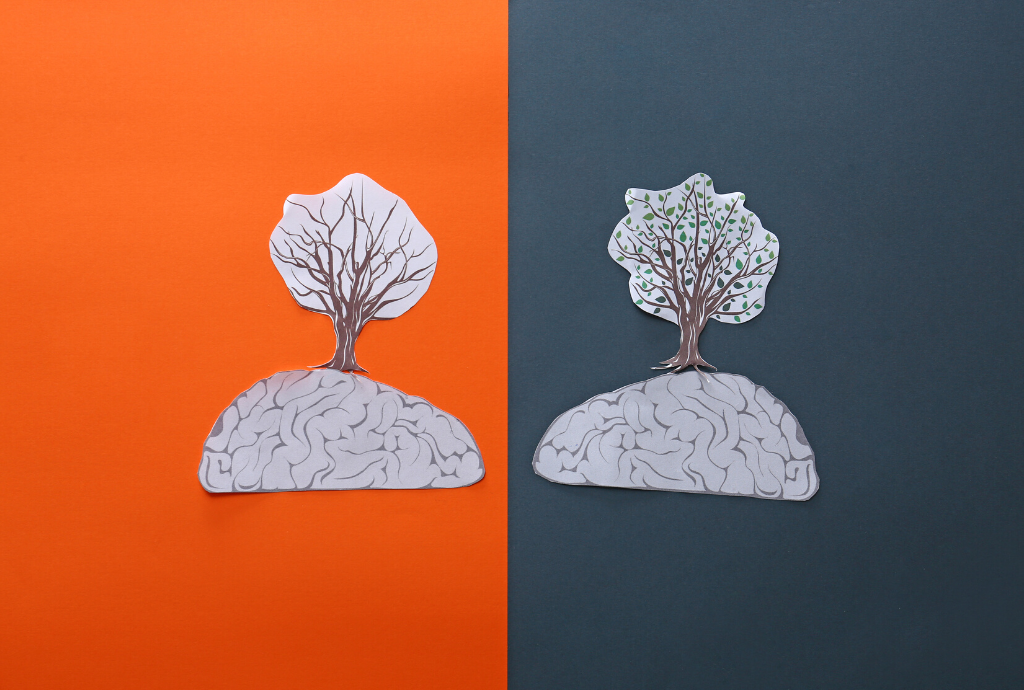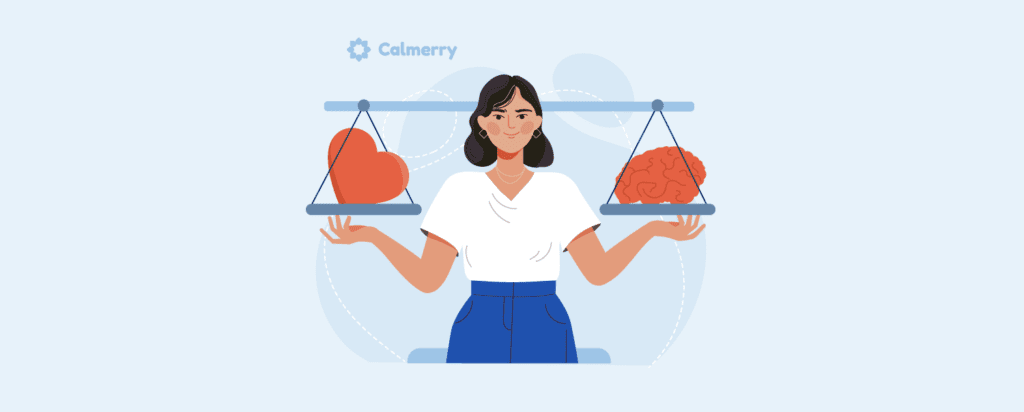What Is Emotional Intelligence and How to Develop It?

In this article
Emotional situations can sometimes get the best of us, and we may even act in ways we later regret. This is entirely normal.
But overall, some people are much better at handling emotions than others, and some can even use their emotional awareness and skills to help them attain positive outcomes.
It all comes down to how emotionally intelligent you are.
Fortunately, emotional intelligence is not just something we’re inherently born with but also something we can learn and develop. And that’s exactly what we’ll be looking at today; what emotional intelligence is and how you can improve it.
Many experts believe that emotional intelligence is more important than IQ when it comes to being successful in life. That’s why learning how to utilize emotions better could be such a worthwhile endeavor.
What Is Emotional Intelligence?
Emotional intelligence is all about making emotions, both your own and other people’s, work in your favor rather than against you.
Emotionally intelligent people can monitor and correctly identify different emotions. They understand that emotional information is a valuable resource; they use it to guide their thinking and behaviors and influence others.
For example, emotional intelligence could be knowing when to step aside and let things cool down in an argument. Doing this, perhaps by seeking guidance from online therapy, might prevent you from saying something you regret in an emotional rage or the situation from escalating if the other person behaves irrationally.
The 5 Components of Emotional Intelligence
According to renowned psychologist Daniel Goleman, there are five key components of emotional intelligence, which he outlined in his bestselling book Emotional Intelligence. They are:
Self-Awareness
Self-aware people can recognize their own emotions and identify how they’re feeling. They understand how emotions can affect their behavior and are aware of their strengths and weaknesses. They also understand how their actions, emotions, and moods can affect others.
Self-Regulation
This is about managing and regulating your emotions so that you’re always expressing them appropriately. It’s not about suppressing emotions, just waiting until the right time. Self-regulation is about being thoughtful, flexible, and able to adapt well to different and challenging situations.
Motivation
Intrinsic motivation is a key part of emotional intelligence. It means inner rewards drive you rather than external ones like money, fame, or respect. It’s about setting your own goals, being passionate and committed to them, and striving to achieve them for personal reasons.
Empathy
This is about seeing things from someone else’s perspective, understanding how they are feeling, and how you would feel if that were you. Emotionally intelligent people use empathy to guide their responses to different social situations and interactions with others; they understand the power dynamics often at play.
Social Skills
Those with high emotional intelligence usually have good social skills, which allow them to build positive relationships, communicate effectively, work well with others, and resolve conflicts diplomatically. Strong social skills help you get the outcome you want in social situations.
We’ll show you how you can develop each of these five elements of emotional intelligence below.
Why Is Emotional Intelligence Important?
Emotional intelligence can bring various advantages to your professional and personal life. Here’s a quick rundown of some of the benefits associated with having high emotional intelligence:
- More resilient, better at handling distress, and good at resolving conflict.
- More likely to have strong and healthy relationships.
- More likely to have workplace success and better job satisfaction and performance.
- More optimistic and motivated.
- Better physical and mental well-being.
- Better quality of life.
- Better leadership and communication skills.
Are There Any Drawbacks?
As greater emotional intelligence can make you more able to influence others, it should be used responsibly, as there are opportunities for misuse.
Some people may use their emotional intelligence to bully, control, or gaslight. When someone knows how you are feeling, they could potentially play on your fears, deceive you, or take advantage.
However, the best defense against this kind of harmful behavior is to improve your own emotional intelligence, so you can always spot the signs and protect yourself.
How to Improve Emotional Intelligence
Now we’ve highlighted the benefits of emotional intelligence; you’re probably wondering how you can improve it! Well, below, we’ve listed six things that can help you develop greater emotional intelligence:
1. Meditation and Mindfulness
Meditation and other mindfulness exercises are excellent ways to boost emotional intelligence. They can improve self-awareness and self-regulation, meaning you’ll get better at recognizing and managing your emotions.
Meditation can also reduce mind-wandering, meaning you’ll stay in the present moment more, which helps you focus, listen, and recognize other people’s emotions.
2. Practice Empathy
As mentioned earlier, empathy is a fundamental part of emotional intelligence. Some people are naturally empathetic, but others need to practice it to build it.
The best way to practice empathy is to look at things from others’ perspectives. Try to imagine how you would feel if you were in their situation and understand why they may have responded a particular way.
3. Explore Your Emotions
You can boost emotional intelligence simply by becoming more curious about your own emotions. When different emotions arise (both pleasant and unpleasant ones), practice identifying, observing, and naming them.
There are 27 human emotions in total; you could create a checklist containing each of these emotions and see how many you can identify over time.
4. Keep a Journal
Journaling is a great way to keep track of and learn about your emotions. As your notes build up over time, it becomes a valuable data source, allowing you to look back for patterns and gain insights.
You can find out how often you experience different emotions and what the triggers and causes might be. This will allow you to do more of what makes you feel good and less of what doesn’t. A journal also gives you an outlet to express your emotions privately, which can help with self-regulation.
5. Connect With Others
You can increase emotional intelligence by being social and interacting with others. Make an extra effort to listen, understand, and pay attention to others during conversations. Look also at what their body language might be saying.
Talking about your feelings and sharing personal experiences with others, such as friends, family, or even a therapist, can also help you gain new perspectives and awareness. Encourage others also to share their feelings, so conversations are not one-sided.
6. Set Goals and Celebrate Achievements
Setting personal goals is another good way to boost emotional intelligence. But if you find yourself trying to impress or seek praise from others for achievements, this could indicate your setting the wrong kind of goals. Instead, you should be motivated and happy to achieve your goals for personal reasons, regardless of any attention they bring.
It’s also important to celebrate successes, as reflecting on your achievements will evoke positive emotions and boost motivation. Setting small achievable goals allows you to celebrate more often, which keeps you and ultimately leads to big successes.
Concluding Remarks
Okay, we hope that gives you a good understanding of what emotional intelligence is and how you can improve it. Boosting emotional intelligence doesn’t happen overnight, but with dedication and the right resources, such as Calmerry, you can build it gradually if you follow some of the tips above.
If you’re looking to develop your emotional intelligence but would like some help, our online therapists are ready to offer their expertise. Working with a therapist and learning techniques like cognitive reframing can really speed up the learning process.
Try Calmerry therapy
online therapy
live video session



